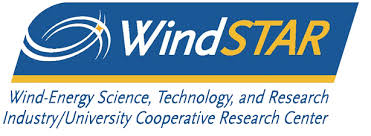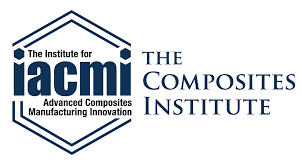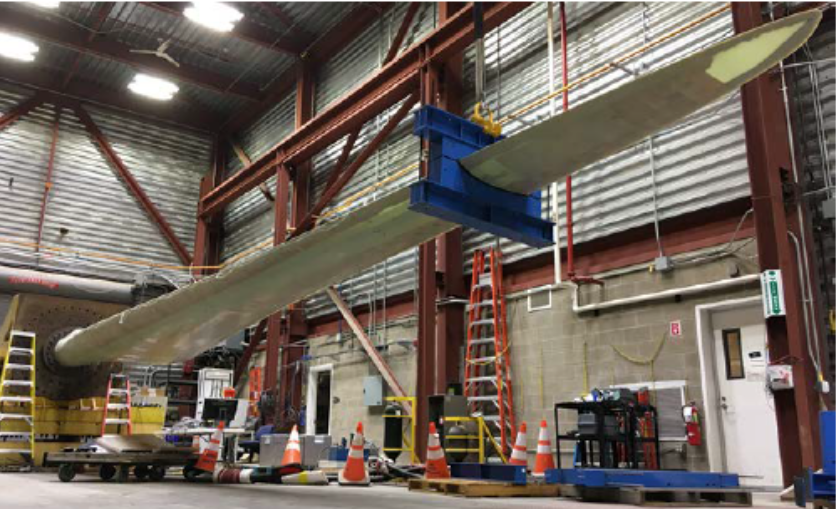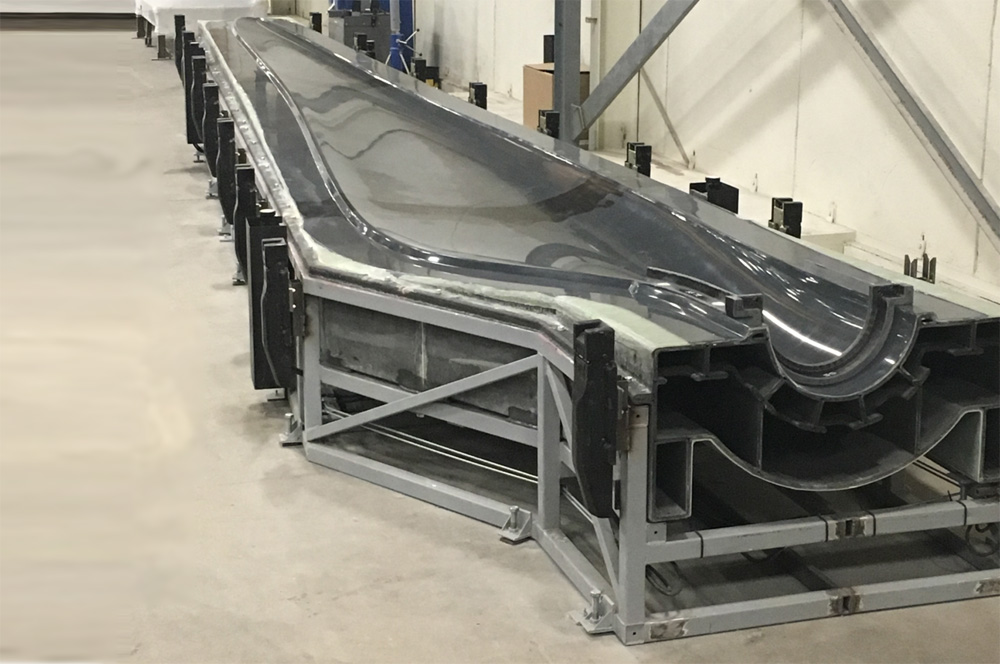Optimum Performance, Lowest Total Cost
TPI is proud of our long-standing history of first-of-its-kind innovations in composite products as well as the development of new and advanced materials, tooling and assembly, manufacturing processes and inspection methods. Our diverse experience and detailed knowledge of composite materials and manufacturing traces its roots as a company to Tillotson Pearson Inc., a leading manufacturer of high-performance recreational sail and powerboats along with pioneering a wide range of composite structures for industrial applications. Leveraging this knowledge and experience, TPI has become the only independent manufacturer of utility-scale wind turbine blades with a global footprint.
We conduct extensive research and development (R&D) in close collaboration with our customers on the design, development and deployment of innovative manufacturing processes, including automation, innovative material application and sophisticated product quality inspection tools. TPI has partnered with the U.S. Department of Energy and the national laboratories for the past 25+ years, focusing on the expansion of clean wind energy through industry leading design, manufacturing and testing of wind blades. We built the world’s first 3D printed set of tools and molds with Oak Ridge National Labs and fabricated multiple sets of blades for Sandia National Labs National Rotor Testbed.

Science Foundation. This Center of Excellence for wind energy research focuses on development of technologies that advances TPI’s interest to improve wind blade design, manufacturing and inspection. However, the broad, multidisciplined experience of faculty and graduate researchers solve broader problems in wind turbine systems which improves our industry and expands the penetration of electricity generated by clean wind.

In addition, TPI is a founding member of the Institute for Advanced Composite Manufacturing Innovation (IACMI). IACMI is one of 15 US sponsored National Network of Manufacturing Institutes established specifically to reduce manufactured cost of composite based products for wind blades, automotive components and compressed natural gas storage systems.
TPI is proud to collaborate with leading universities, National Labs and industry partners on four separate active projects. The projects include activities in wind energy and creation of sustainable products through increased opportunities for composite material recycling.


TPI also contributes to research projects that focus on the environmental impact of wind turbine blades throughout their life cycle. From 2019 to 2022, TPI partnered with RecycleWind, a publicly funded research consortium aimed at developing resilient recycling networks for wind turbines and blades.
![RecycleWind_Logo[2] copy RecycleWind Logo](http://tpi-composites-v1770132261.websitepro-cdn.com/wp-content/uploads/2022/10/RecycleWind_Logo2-copy.png)
The project developed an Environmental Product Declaration, a Type III Environmental product label in accordance with ISO 14025, to share specific product information and account for producer responsibility.
The Declaration contains product-specific data for TPI’s 58.8m wind blade model including material composition, manufacturing, handling, safe dismantling, and potential end-of-life solutions to enable high-value recycling. The report also conducts a life cycle analysis of the blade during blade material sourcing, production, and disposal.
The Environmental Product Declaration 2.0 includes an additional CFRP-blade version and further details the position of valuable materials in the blade structure to create material flows as homogenous as possible during disassembly. It also describes and assesses specific recycling options that are available to maximize the rate of sustainable material usage. The RecycleWind project assists TPI in implementing eco-design as a criterion for the blade design process.
Our research and development efforts place a priority on improving quality through continuous process improvement, while reducing cost by improving specifications, cross-qualifying materials and developing a more diverse supply chain. Other areas of emphasis include composite design, in-house fabrication of precision molding and assembly systems, prototyping, testing, optimization and effective scaling of production methods. TPI places a premium on state-of-the-art methods to improve design and manufacturing. We have pioneered the use of model-based manufacturing to ensure the preparation, planning and execution of our manufactured products meet the highest standards with the very first part produced.
TPI encourages innovation from our associates and provide the resources for invention and development of new technologies to maintain our industry leading competitiveness in the marketplace. In addition to our internal research and development activities, we also pursue funded research and development in collaboration with our customers and other third parties.
